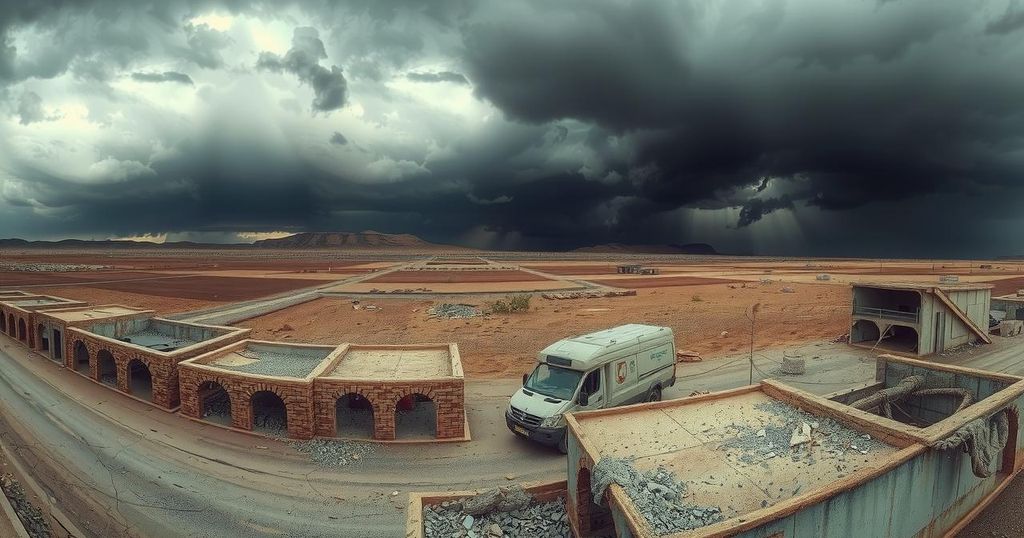The Ongoing Conflict in Sudan: Prospects and Implications
Sudan’s civil war has reached a critical juncture after two years of violence, resulting in tens of thousands of deaths and the displacement of millions. Recent military victories against the RSF have led to a de facto partition of the country, with both sides preparing for continued conflict. The RSF’s establishment of a parallel government complicates prospects for peace, as humanitarian crises continue to escalate.
The civil war in Sudan is at a critical point after nearly two years of conflict, resulting in tens of thousands of deaths and the displacement of millions. Recent military advances against the paramilitary Rapid Support Forces (RSF) indicate a shift in control, particularly over the capital, Khartoum. However, the RSF has not acknowledged these territorial losses, suggesting the battle is far from over.
The conflict, which ignited in April 2023, was initially spurred by former allies—the military and RSF leaders—ultimately hindering the transition to civilian governance that followed the popular uprising in 2019. Consequently, fighting escalated, leading to at least 28,000 fatalities and exacerbating widespread famine affecting over 14 million people displaced.
While the military’s recent successes may signal a new phase in the war, it is unlikely to lead to any immediate peace. The military chief, Gen. Abdel-Fattah Burhan, appears disinterested in meaningful negotiations, and the RSF, led by Gen. Mohamed Hamdan Dagalo, continues to assert its position, particularly in western Sudan’s Darfur region, where it retains significant control.
The RSF’s formation of a ‘parallel government’ in February is pivotal. This move, forged alongside allies in Nairobi, lays groundwork for competing administrations amid ongoing conflict, thereby solidifying Sudan’s de facto partition. The RSF’s charter advocates for a decentralized, secular state, promoting local autonomy for diverse communities that have long sought independence from central control.
Emerging from the controversial Janjaweed militias, the RSF has faced numerous accusations of atrocities throughout the conflict. The Biden administration has leveled sanctions against Dagalo, citing genocidal actions attributed to the RSF, which the group has vehemently denied, as has the military against its own accusations of human rights violations.
In summary, the situation in Sudan remains dire, with ongoing violence and a military victory that is unlikely to yield peace. The establishment of a parallel administration by the RSF complicates an already fragmented state, signaling a protracted power struggle. The humanitarian crisis continues to deepen as millions remain displaced, entrenched in poverty and famine. Without substantial diplomatic efforts, the conflict in Sudan is poised to persist, perpetuating suffering for its populace.
Original Source: www.newsday.com




Post Comment